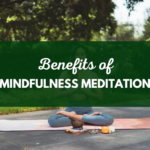Jon Kabat-Zinn’s Inspirational Teachings
Hey there, stressed-out friends!
Do you ever feel like life is overwhelming and too much to handle?
You may constantly be on the go, juggling work, family, and other commitments. Or perhaps you’re feeling anxious or uncertain about the future.
If so, don’t worry; you’re not alone!
Thankfully, there are many ways to restore balance and cultivate inner peace.
In this article, we’ll explore how Jon Kabat-Zinn’s teachings can help you find mindfulness and relaxation.
So let’s take a deep breath and relax first!
And let’s get started!
Who is Jon Kabat-Zinn?
Jon Kabat-Zinn is a mindfulness teacher and author who has significantly popularized Western mindfulness practices.
He is the founder of the Stress Reduction Clinic at the University of Massachusetts Medical School and the Center for Mindfulness in Medicine, Health Care, & Society.
He is the author of many books on mindfulness, including Full Catastrophe Living and Wherever You Go, There You Are.
What is mindfulness?
Mindfulness is characterized by present-moment awareness, nonjudgment, and acceptance.
It involves paying attention to your thoughts, feelings, and bodily sensations in the present moment without getting caught up in worries or distractions about the past or future.
Mindfulness can help reduce stress, anxiety, and other negative emotions and promote greater well-being and fulfillment.
Now that we know who Jon Kabat-Zinn is and what mindfulness is, let’s dive into the basics of his teachings.
Kabat-Zinn’s teachings center around mindfulness, which he defines as “the awareness that arises through paying attention, on purpose, in the present moment, non-judgmentally.”
The Basics of Jon Kabat-Zinn’s Teachings
Here are some of the key concepts in his teachings:
Mindfulness Meditation: Kabat-Zinn is known for his mindfulness meditation techniques, which involve sitting in a quiet space, focusing on your breath, and paying attention to your thoughts and sensations without judgment.
The Power of Now: Kabat-Zinn emphasizes the importance of being present in the moment rather than worrying about the future or dwelling on the past.
Emotional Intelligence: He encourages the development of emotional intelligence through mindfulness, which involves recognizing and healthily regulating emotions.
Self-Compassion and Compassion for Others: Kabat-Zinn emphasizes the importance of showing compassion to oneself and others, even under challenging circumstances.
Stress Reduction Techniques: Kabat-Zinn teaches stress reduction techniques that help people manage stress and improve their overall well-being.
Living in the Present Moment: His teachings encourage living in the present moment and experiencing life entirely rather than being distracted or preoccupied.
Acceptance and Commitment Therapy (ACT): Kabat-Zinn’s teachings draw from Acceptance and Commitment Therapy, which emphasizes accepting complex thoughts and feelings rather than trying to avoid them and committing to behaviors that align with one’s values.
The Benefits of Mindfulness
Mindfulness has many benefits for both physical and mental health.
Research has shown that mindfulness can help reduce stress and anxiety, lower blood pressure, and improve sleep quality.
It can also promote greater self-awareness, emotional regulation, and resilience in facing life’s challenges.
How to Practice Mindfulness with the Help of Jon Kabat-Zinn’s Teachings
Here are some mindfulness techniques and exercises that Kabat-Zinn recommends:
Meditation Techniques: Kabat-Zinn’s meditation techniques involve focusing on your breath, observing your thoughts without judgment, and practicing loving-kindness meditation.
Breathing Exercises: Breathing exercises can help to ground you in the present moment and regulate your emotions. Kabat-Zinn recommends the “S.T.O.P.” technique, which stands for Stop, Take a Breath, Observe, and Proceed.
Body Scanning Exercises: Body scanning exercises involve paying attention to bodily sensations and can help promote relaxation and mindfulness.
You can watch this video.
Yoga and Other Exercise Routines: Mindful movement practices such as yoga or tai chi can help to improve physical and mental well-being and promote mindfulness.
Living in the Present Moment: Kabat-Zinn emphasizes the importance of being present and paying attention to the world around you. He encourages practicing mindfulness in everyday activities such as walking or washing dishes.
Being Kind and Compassionate to Yourself: Practicing self-compassion can improve overall well-being and promote mindfulness. Kabat-Zinn emphasizes the importance of being kind and gentle with yourself, especially during difficult times.
Examples of How to Apply Jon Kabat-Zinn’s Teachings in Everyday Life
Mindful Eating and Drinking Habits: Applying the teachings of Jon Kabat-Zinn can help us be more mindful of our eating and drinking habits. Instead of mindlessly grabbing a snack or pouring an alcoholic beverage, we can check in with ourselves first.
Ask yourself if you’re really hungry or just bored. Is this good for your body?
Then slow down and savor each bite or sip, paying attention to the taste, texture, smell, and temperature.
This allows us to be aware of our choices so we can make healthier ones in the future.
Mindful Communication: Another critical aspect of Kabat-Zinn’s teachings is mindful communication. Mindful communication involves:
- Being present and fully engaged in your conversations with others
- Listening actively
- Responding thoughtfully rather than reactively
By practicing conscious communication, people can improve their relationships and build deeper connections with others.
Mindful Movement: Kabat-Zinn also recommends mindful movement practices like yoga or tai chi. These practices involve moving the body deliberately and mindfully, focusing on the present moment and bodily sensations. This can help people reduce stress and anxiety, improve physical health, and cultivate greater well-being.
You can watch this video.
Mindful Work: Mindful work involves bringing present-moment awareness to your work, focusing on one task at a time, and taking breaks to recharge and refocus.
Mindful Self-Compassion: Kabat-Zinn encourages people to cultivate self-compassion by treating themselves with kindness and understanding, even in difficult moments. This can involve offering oneself words of encouragement or comfort and acknowledging that everyone experiences challenges and struggles in life.
Mindful Appreciation: Kabat-Zinn encourages people to cultivate gratitude and appreciation for life. This can involve taking time each day to reflect on the things you’re grateful for and savoring the positive experiences in your life.
Practicing Gratitude
Gratitude is a powerful tool that can help us daily. Incorporating these qualities into our lives is especially important during stress and adversity.
For example, taking time each day to acknowledge the people who have positively impacted your life is one way to practice gratitude. This could be done by writing a thank-you note or even simply speaking aloud a few words expressing your appreciation for their presence in your life.
Engaging in Self-Reflection Exercises
Engaging in self-reflection exercises and taking time out for yourself to relax and recharge are two great places to start. Here are a few examples of how you can get started today.
First, allow yourself to take some “me” time—just like Jon Kabat-Zinn recommends. Set aside at least 10 minutes from your day for self-reflection exercises that help you ground yourself and reconnect with your innermost thoughts and feelings. This could include writing in a journal, meditating, or even doing yoga or mindfulness activities.
Tips for Incorporating Mindfulness into Your Daily Life
- Start Small: Begin with short meditation sessions or incorporate mindful moments into your daily routine, such as taking a few deep breaths before starting a task or eating a meal mindfully.
- Be Patient and Nonjudgmental: Mindfulness is a practice that takes time and patience to develop. Be kind to yourself and avoid judging your experiences or progress.
- Find a Community: Joining a mindfulness community, such as a meditation group or yoga class, can provide support and accountability for your practice.
- Practice Consistently: Consistency is key to developing a mindfulness practice. Try to practice daily, even if it’s just for a few minutes.
- Be Mindful in Everyday Activities: You don’t have to set aside a specific time for mindfulness. You can practice mindfulness in everyday activities such as brushing your teeth, washing the dishes, or walking to work.
In Summary
Jon Kabat-Zinn’s teachings on mindfulness, meditation, and living in the present have greatly impacted many people’s lives, providing guidance, comfort, and peace along the way.
His approach to life is truly inspiring, and his words continue to help those seeking more meaningful lives.
We cannot underestimate the power of mindfulness and meditation, so why not try?



